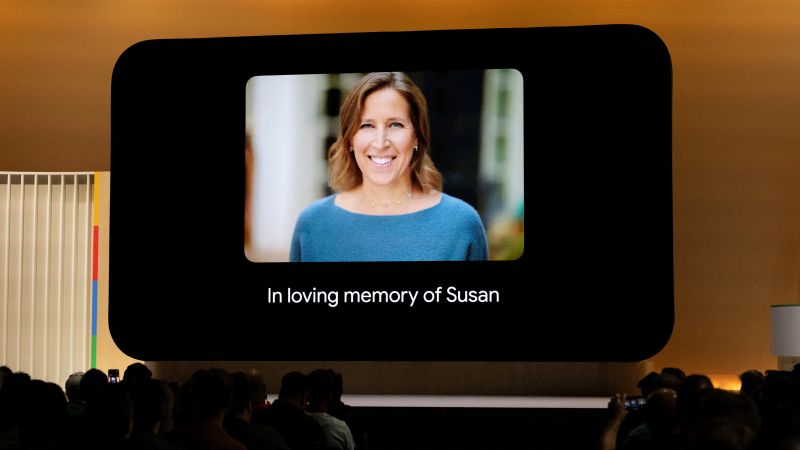In a poignant moment leading up to her passing, Susan Wojcicki, the former CEO of YouTube, shared a powerful message concerning the alarming rise in lung cancer among women who have never smoked. Her blog post highlighted an urgent call for increased investment into lung cancer research, especially focusing on this demographic. Wojcicki, who passed away from lung cancer after a two-year battle at the young age of 56, underscored a critical observation: while overall lung cancer rates have been declining due to reductions in smoking, the rates among non-smokers, particularly women, have been rising significantly.
Wojcicki’s blog, written mere weeks prior to her death, conveyed her personal experience with this disease, which had stunned her given that she had never smoked and had been physically active. Diagnosed at the end of 2022, she described the struggle of living with lung cancer, emphasizing the importance of enjoying the present moment and advocating for greater awareness and understanding of the disease. Her message sought not only to shed light on her journey but also to galvanize support for better research funding into lung cancer—particularly as statistics indicate that roughly two-thirds of lung cancer cases in never-smokers are among women.
The rising trend in lung cancer diagnoses among young women, particularly those aged 36 and younger who have never smoked, is alarming. Jhalene Mundin, a nurse from New Jersey, echoed the experience of many when she was diagnosed with stage IV lung cancer last year. Her unexpected diagnosis came after a series of misassessed symptoms thought to be residual effects of a coronavirus infection. The persistence of her cough, a later indicator of lung cancer, underscores the challenges with early detection often faced in women and non-smokers.
Research indicates that lung cancer has increased 84% among women in the United States over the last four decades, while it has decreased among men. The data reveal that women who have never smoked are more than twice as likely as their male counterparts to develop lung cancer. The reasons behind this troubling trend remain unclear, but factors such as environmental exposures—including air pollution and secondhand smoke—alongside genetic mutations are believed to play significant roles.
Dr. Helena Yu, a thoracic oncologist, noted that about 20% of lung cancers diagnosed are in never-smokers, amounting to approximately 40,000 new cases each year. This increase in diagnosis among non-smokers reflects a broader issue of awareness and recognition of lung cancer symptoms and risks. Mundin’s journey illustrates the hardships faced by many young women like her, who navigate a landscape of misunderstandings and inadequate screening protocols.
Legislation such as the Women and Lung Cancer Research and Preventive Services Act seeks to address these discrepancies by increasing research funding and awareness regarding lung cancer in women. Historically, women have been underrepresented in significant lung cancer studies, leading to gaps in knowledge about how the disease uniquely impacts them.
Despite available treatment options ranging from surgery to chemotherapy and targeted therapies tailored to genetic mutations such as those affecting the epidermal growth factor receptor (EGFR), challenges remain in early detection and adequate screening. The standard practices predominantly recommend lung cancer screenings for individuals with a history of smoking, leaving many never-smokers out of the critical loop.
As a poignant reminder of the impact of lung cancer, Mundin hopes her story, along with those of others, brings awareness to these growing cases and catalyzes a movement toward early detection and research focused on lung cancer in young women. Through interviews and shared experiences, such as those of Kara—another woman diagnosed with lung cancer without smoking history—this growing narrative emphasizes a need for recognition of the specific challenges and health risks posed to women.
In conclusion, Wojcicki’s legacy, along with the voices of women like Mundin and Kara, encapsulates a deep-seated call to prioritize lung cancer research that reflects the realities faced by young women and non-smokers in dealing with this deadly disease. It is a clarion call for increased funding, awareness, and advocacy aimed at transforming how we understand and battle lung cancer for future generations.












